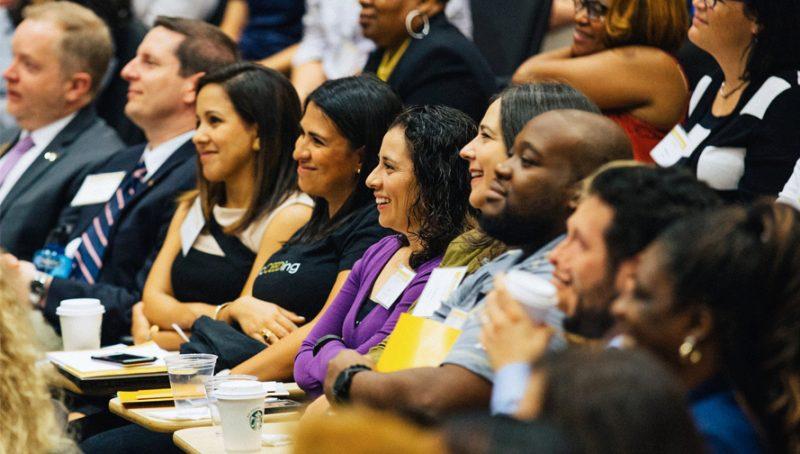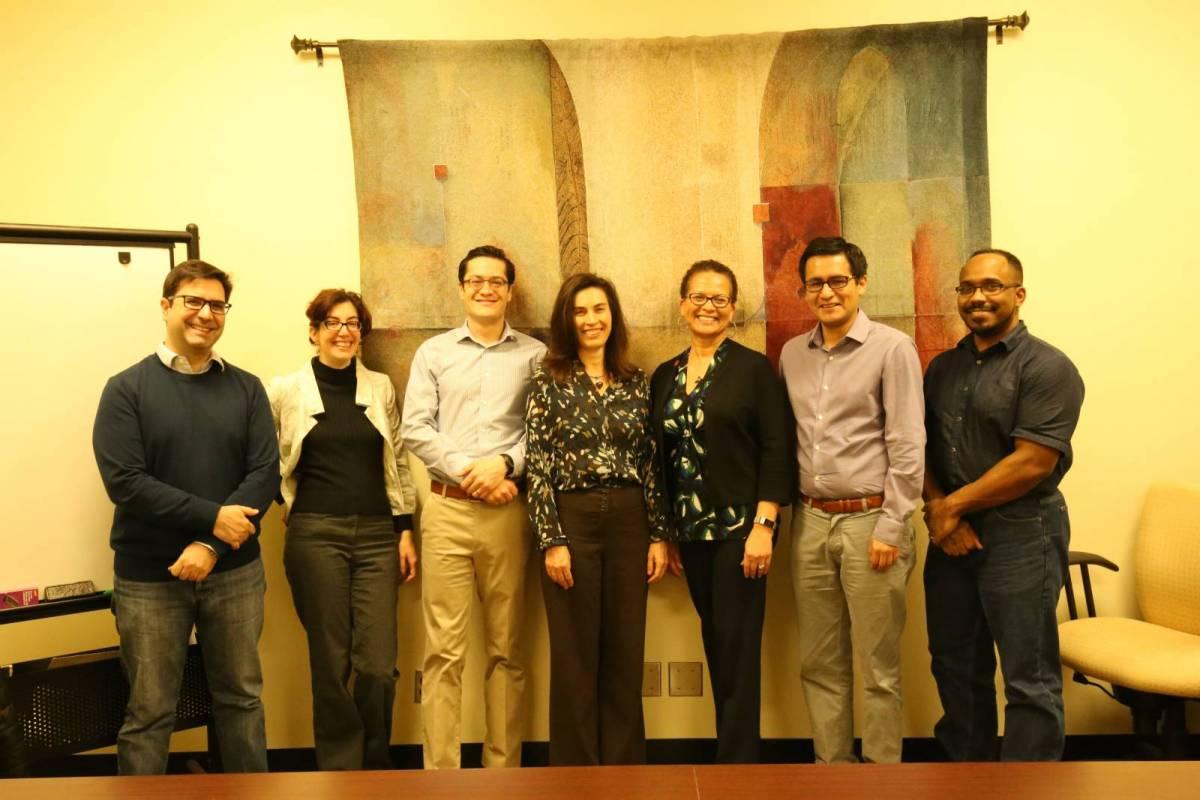As part of Georgia Tech’s continued efforts to attract the best and brightest students and faculty from all over the world and provide them with an environment to thrive, the College of Engineering (CoE) has formed a Diversity and Inclusion Council. The Council fits right in with the other programs that the College and the Institute have already been cultivating, such as Women in Engineering, the Center for Engineering Education and Diversity, ADVANCE, and many others. It is yet another way to bring students, faculty and staff together in the interest of creating a more inclusive community.

Steve McLaughlin, Dean of Engineering, Pinar Keskinocak, CoE Interim Associate Dean for Faculty Development and Scholarship, Beki Grinter, Associate Dean for Faculty Development in the College of Computing, along with other colleagues , spearheaded the creation of the Council as a proposal to the Strategic Planning Advisory Group, a group that supports projects to further the Institute’s strategic plan. CoE has worked on a number of diversity and inclusion initiatives for a while, and this Council will help take these efforts to a new level by expanding the involvement to more people.
“We learn from each other, and our lives become more enriched if we are in a diverse environment, especially as the world becomes more and more connected.” said Keskinocak. “We can be more creative and productive if we work together instead of only being with people who are similar to us..”
The Council includes eight faculty and staff representatives – one from each school within the College. The Council will behave in a cross-functional manner; it will look at issues faced by students, faculty, and staff and utilize existing programs to identify gaps and implement changes to fill these gaps.
The Council will be independent of other administrative entities and will report to the Dean of Engineering. Keskinocak will continue her close involvement and support, and she hopes that there will be a great deal of collaboration between the council and complementary groups such as the Diversity and Inclusion Fellows, another relatively new endeavor. Fellows are individuals who come up with ideas for programs or projects that could improve diversity and inclusion on campus and work to make it happen.
Some colleges on campus have already established diversity and inclusion councils, and the actions and recommendations from these groups will inform many of the preliminary activities of the CoE’s Council.
As the Council has its first few meetings, the members are finding that while they come from wildly different backgrounds, they have one thing in common: a desire to see a positive change in campus culture through the embrace of diversity and inclusion.
Council member Natashia Boland was a postdoctoral researcher at Georgia Tech twenty years ago. She returned three years ago to teach as a professor in the School of Industrial and Systems Engineering, and says that in the past decades, the atmosphere surrounding diversity has changed tremendously for the better. However, she and her colleagues on the Council agree that there is more to be done. Boland particularly wants to see more diversity in graduate and postgraduate programs at Tech.
The Council is currently in a data-gathering stage and further investigating some of the trends and issues that have slowly revealed themselves. Such areas of focus include support of transfer students, hiring and promotion of diverse faculty, and the socioeconomic barriers that many students face.
“We're engineers. We like to know that we are focusing energies in the right place from a data perspective,” said Boland. “But we're also not ignoring our own anecdotal evidence. We're also individuals that are quite experienced in the academic world, and we're not downplaying our personal stories and what we might bring to the table.”
Once the Council identifies the issues to focus on through this objective and subjective information, they will start to develop solutions to the problems that face the Georgia Tech community. They will report quarterly to the CoE Dean Steve McLaughlin, who will work to implement the changes suggested by the Council.
The eight council members include: Julian Rimoli, Goizueta Junior Professor in the School of Aerospace Engineering; Francisco Robles, Assistant Professor in the Coulter Department of Biomedical Engineering; Hermman Fritz, Professor in the School of Civil and Environmental Engineering; Christian Cuba-Torres, Lecturer in the School of Chemical and Biomolecular Engineering; Elliot Moore, Associate Chair for Undergraduate Affair; Natashia Boland, Professor in the School of Industrial and Systems Engineering; Antonia Antoniou, Associate Professor in the School of Mechanical Engineering; Hamid Garmestani, Professor in the School of Materials Science and Engineering; and ex officio member LaJuana Ellis, Executive Assistant to the Dean.
